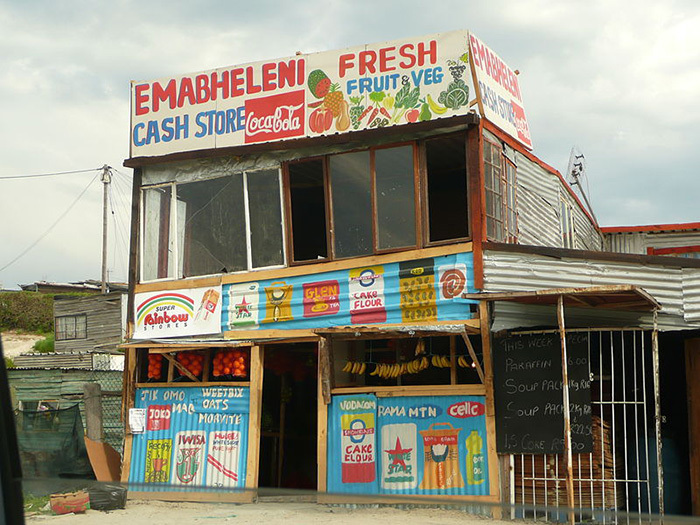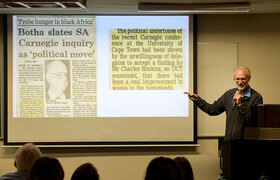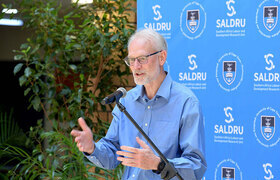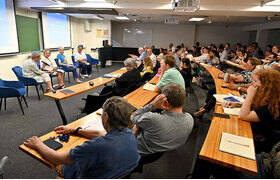SA consumers and their dark linguistic secrets
05 September 2014 | Story by Newsroom
African-language adverts are warm and persuasive '“ so why are they so scarce? asks Tessa Dowling.
Does the car you want to sell date from the previous century and need serious panel-beating? Eish mjitha, put an advertisement in Zulu in that great Zulu newspaper Isolezwe and you'll have no problems flogging the thing, my bra. Ngekesh. For cash.
But have you ever seen Zulu or any other African language being used to sell a brand-new BMW? As one of my students, a Venda-speaker, said to me: "I would never buy anything that was sold to me in an African language. I would suspect it." The same lovely young woman also told me that "No man can romance me in Venda. If you want to sleep with me, your seduction must be in English." Seriyas.
It would seem that South African advertisers and marketers know this dark linguistic secret about their consumers. But it was not always so; I recently researched the history of Xhosa advertising in the print media, and noted that in the 1800s newspaper advertisements did not specifically associate Xhosa with poverty, illiteracy or a lack of education. At that time, Xhosa '“ like English '“ was used by people from all sorts of economic and class backgrounds. The language carried commercial weight, and had currency when it came to marketing.
This currency steadily declined so that even the Xhosa version of Bona magazine now only has 17% of its advertisements in the vernacular. Adverts marketing home furnishings, beauty and baby products and educational institutions all use English exclusively. On the other hand, building supplies and household cleaning materials are promoted entirely in African languages.
Come on, my bru, you can mos see why! We had better use the vernacular when we want to sell cheap building materials so that we can attract all those people who need to put up a shack quick-quick '” and we also want the domestic worker to write Handy Andy on the shopping list, not just any old household cleaner.
When you ask magazine publishers why there are so few advertisements in African languages, they tell you that it's an issue of budget and space. Apparently, African languages take up too much space. And the translators charge too much money. That's hugely unscientific, but you can't blame them for making those excuses. English is so much easier, even if it is dreary and outdated in this multilingual, multi-mad country of ours.
If you want a break from the boredom of English advertising, tune into an African language radio station such as Umhlobo weNene (Xhosa), Ukhozi (Zulu) or Lesedi FM (Sotho).
The copy of the advertisements broadcast by these radio stations is sometimes dull, but the way it's spoken is lively, colloquial and hilarious. The voice artists are superb (and you might even catch an inspired rugby commentary '” the best in the world is in Xhosa). There are a number of lotions and potions I have bought because the tone and warmth of the speech was utterly entrancing. And whereas I never used to think of Wimpy as a place for smart celebrations, the Xhosa advertisement for this fast-food outlet's steaks is so terrific that I'm planning to hold my birthday bash there. But I'm still loyal to Nando's, because of its fabulous Xhosa pun: Hlonipha ulwimi lwakho (Respect your tongue).
Going back kwiradiyo, to the radio: there is a friendliness, dignity, humour and sincerity in African language adverts that I don't hear in English adverts. So why, even on television channels dedicated to African language-speakers, such as SABC 1, are more than 95% of the advertisements in English?
We suspect anyone who sells to us or tries to seduce us in our own language. But where does that idea come from?
African languages are not perceived by middle-class blacks (the ones with enough money to buy new German cars) to have enough prestige. Thabo Ditsele, a scholar of African language sociolinguistics, recently noted during a Talk Radio 702 interview that a politician told him he had to use English for his speeches so that he did not sound stupid. What does that tell you? That politicians think people who speak African languages sound stupid?
Then you see Nedbank's Ke Yona campaign (in Sotho and Zulu), or even better, the King Pie advert in which the white girl chirps back in Zulu after hearing herself being gossiped about. They are comical, crazy and cute. Not only do they make you laugh, but their wit persuades you that the brand is better. And they reflect our true voices, delivered in our own languages.
Don't let's buy into the idea that English is best to sell in. It isn't. And, by the way, has anybody ever seduced you in Sotho? It's much sexier than French.
Dr Dowling is a senior lecturer in African languages in the school of languages and literatures at the University of Cape Town.
This article first appeared in the Sunday Times. Image courtesy of Wikimedia Commons.
 This work is licensed under a Creative Commons Attribution-NoDerivatives 4.0 International License.
This work is licensed under a Creative Commons Attribution-NoDerivatives 4.0 International License.
Please view the republishing articles page for more information.










